Staying healthy, socially active and adapting to the new normal
Coronavirus has changed everything, hasn’t it?
It’s altered how we shop, socialize, exercise, work, and even think. This public health crisis brings to light existing societal fractures such as a fragmented healthcare system, our dependence on public schools (and other organizations) for square meals for countless children and how prevalent health inequities are in communities of color. It exposes many Americans to a first-hand experience of what it’s like to be socially isolated. Many older adults face social isolation during ‘normal’ times and many more experience isolation now. The scary thing is—none of us really know how long we’re going to be holed up.
I’m a public health professional, but I am not an infectious disease expert. However, I’m preparing, mentally, to be living in versions of this new normal for another year. I think older adults will be the last group of people who are recommended (and willing) to reassemble into groups—and for good reason. We should all be very cautious of COVID-19. As the weeks roll on and we continue social distancing, the negative impacts of isolation may begin to set in. And impact may not feel good.
Research over the last six years spotlights how social isolation affects overall health. It can lead to a greater risk of depression, falls and exacerbating other chronic conditions like heart disease. It can impact your overall health as negatively as smoking 15 cigarettes per day. For nearly 20 years, Oasis continues providing programs to reduce isolation among older adults, but now it’s more important than ever.
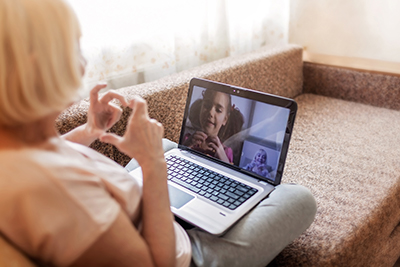 How do you stay engaged in the era of social distancing?
How do you stay engaged in the era of social distancing?
- Stay in touch with your family and friends! Even though many of us may not have much new news to talk about, it’s important to keep ‘hanging out’ through video chats and phone calls any way you can. My partner and I make sure we video chat with his mother every few days so she can watch her first grandchild eat new foods, play peekaboo and take baths. Oasis members can participate in Conversations that Count, a phone-based program providing interesting conversations guided by a volunteer.
- Keep active. Even though the weather is nice now, some parks may still be closed. Be sure you’re staying active. It’s not easy to create a new routine while it’s unclear when gyms will be back open. However, I don’t think it’s going to be soon. We must find a new exercise routine that can be done from home or around the neighborhood. I subscribe to an exercise app and the activity significantly raises my mood.
- Keep learning something. This is the perfect time to learn a new hobby (that can be done at home). Read something you’ve never had the time for or re-read something you haven’t touched in decades. Watch all the Ken Burns documentaries (that may take you through this quarantine). Join an Oasis Zoom Video class! Also, no judgment if you want to watch trashy reality shows. Just keep your mind engaged!
- Do what you can to avoid feeling lonely, even if you’re isolated. There is a difference between loneliness and isolation and they’re not necessarily correlated. We may be isolated, but we can work to not be lonely. The above recommendations can help reduce loneliness, as well as any kind of interaction with others. Social media is another great tool to stay in touch with others (forewarning—for some social media has an adverse emotional effect and should be turned off if it feels toxic). I personally find social media platforms to be a happy place because I’ve curated my feeds to pictures of friends and family, cute animal videos and funny memes. I chose to minimize exposure to extreme political posts because I don’t like them.
We can find routines during this “new normal” that feel sustainable in keeping us healthy. We may have to get used to being six feet apart from people for a while, but we can still find ways to feel better, both physically and mentally.
 Juliet Simone
Juliet Simone
Oasis National Program and Health Director
health.oasisnet.org
What activities are you doing?
What have you found to keep yourself socially connected and healthy during social distancing? Share your ideas in the comments below under “Leave a Reply”!

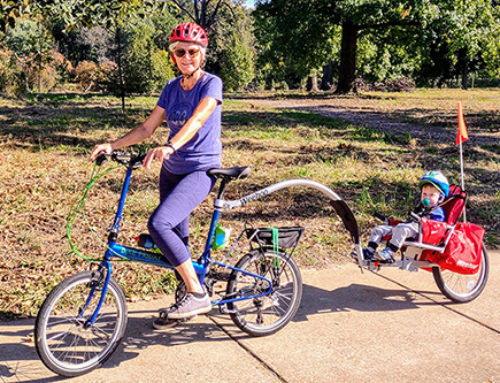
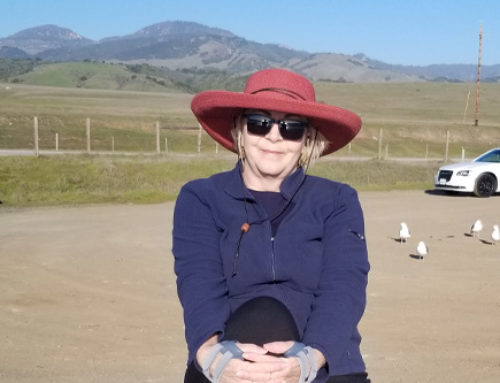
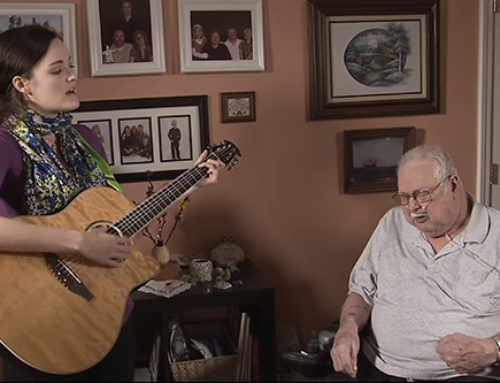

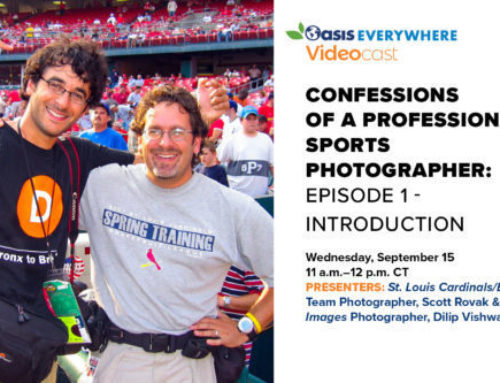
would like conversational spanish yes
I do agree when you shared that it is important to stay socially active and keep up with your family and friends during the lockdown period. My friend just mentioned the other day that she is worried about her parents as she hasn’t been able to see them for quite some time due to the lockdown restrictions. I will suggest to her staying updated with her family during the period and look for any reliable local news update about the current situation.